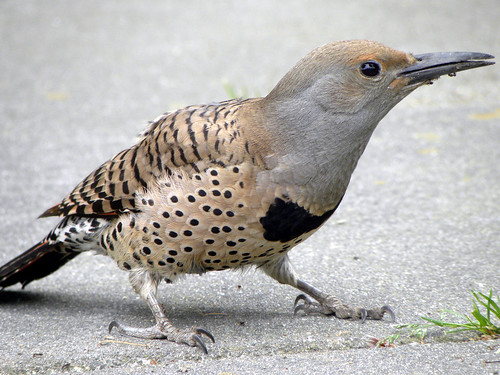This is, essentially, a post about where I get my ideas.
In the months when I was gearing up to attend Clarion West in 1995, I spent most of my writing time on short mysteries, because I was hoarding my SF ideas. As a result, I got to Seattle with a healthy little clutch of index cards jammed with scribblings. One had notes on an image I’d had, of teenaged human girls caught in the midst of a fashion fad: they were wearing the four-armed coats made for members of a race of aliens, half a million of whom had come to live on Earth as refugees. I imagined one of those aliens, also female, watching them through a window, and trying to make sense of the behavior.
I wrote the story at Clarion. In various incarnations it was called “Voice of Reason,” and “Sotto Voce.” It was long and imperfect and dear to my heart; I think it was the first time it really occurred to me that even a nice fictional character might lie, might promise to do one thing and then go in an entirely different direction. It also had some thorny, autobiographical stuff. I’d never attempted that before either.
I never got “Sotto Voce” into anything approaching submission readiness–having gone to Clarion to experiment, I came home with a number of unviable mutants–but a passing reference in that story to a second alien race, the Nandieve, spawned “The Dark Hour.” Its main character is a young human pilot, Oriole. Like those girls with their four-armed winter coats, he’s embraced otherness; he sees the Nandi as a wiser, more sophisticated and more powerful culture than the one he was born into. When his ship gets hijacked, he ends up on the Nandi homeworld, which affords him a closer look at their best and worst qualities. Basically a rose-colored glasses go smush type of thing.
The story was initially published in Tesseracts 8, which was edited by John Clute and Candas Jane Dorsey. It came out in 2006 and I’d have sworn it was the first of the stories set in this universe to see print. (The Internet Speculative Fiction DB says otherwise.) It was definitely one of the earliest of the batch in terms of when I actually wrote them. Here’s a snip:
Days after she rescued Brother, a black ball of feathers flailing in wet leaves, Momma was killed by a white riot cop. Her son divorced his species, changing his name to Oriole and taking the crow as his only family. An orphanage run by Momma’s church took them in, and he lived there in silence for two years. He didn’t say a word to another human, black or white, until Contact, the day that emissaries of seven alien races came to Earth, transmitting messages of friendship from their fragile, exquisite spaceships.
The nuns found him outside that night, face tilted to the stars, mumbling alien words. His voice was hoarse from lack of use–like Brother, he croaked.
“Yah Kurar. Sky’s calling,” he said, as Sister Beverly carried him to bed.
I took to calling this series “The Slow Invasion” because in this universe, Earth’s economy gets bound up, to humankind’s detriment, in the trade of bigger and more advanced cultures. Eventually, we’re no longer self-sufficient. There were four of them published, and a few false starts–“Sotto Voce,” of course, and at least one fragment I workshopped at Turkey City but never finished. Each was written as a stand-alone, and they aren’t as tightly interlaced as the squid stories. They’re unified by that idea of a well-established intergalactic community, with its treaties and alliances and a well-established economy, and how Earth might fare if we enter it as a latecomer.
“Ruby, in the Storm,” started with an image not unlike the one that led to “Sotto Voce.” This time, it was a human watching an alien, again through a window. The frame this time was a recurring visual from my childhood: a heavy, windless Alberta snowfall, a blizzard of irregular, pea-sized clusters of snowflakes, falling in impenetrable curtains. In these storms, the flakes stream down so slowly it seems possible they might hover, or even reverse direction. Air just below freezing, sound deadened by the sheer density of the gently falling precipitation… the world is hidden in a glow of amber from the street lights as the snow piles and piles and piles.
The inspiration for “A Slow Day at the Gallery,” meanwhile, came from a CBC Radio story I heard, about a B.C. First Nations tribe that was having to jump through hoops to get a museum in Europe to repatriate a stolen totem pole.
I wrote “The Spear Carrier” just after I’d joined a choir. I was in the process of learning the names of all sorts of exciting new people who’d just come into my life. Something about that experience got me to thinking about coming-of-age rites and naming and reinvention and, well, nametags. I’d discovered that I remember names better if I see them written down or, better yet, if I write them down myself. That led to my creating another offworld race, one with peculiar dueling laws and a complex naming ritual that ends with the celebrant getting a piece of ornate name-related jewelry that is their legal ID and their badge of adulthood.
I’ve been mostly wrapped up with novels in recent years, and a good deal of my short fiction energy lately has elsewhere. The squid stories fed off the Slow Invasion energy: I couldn’t quite imagine the Nandi and the Yeti and the rest getting involved in that particular civil war. (I sometimes think of the squid stories as the Fast invasion.) But I like these stories, and I’ve always had the idea that I’ll return to this universe again.




